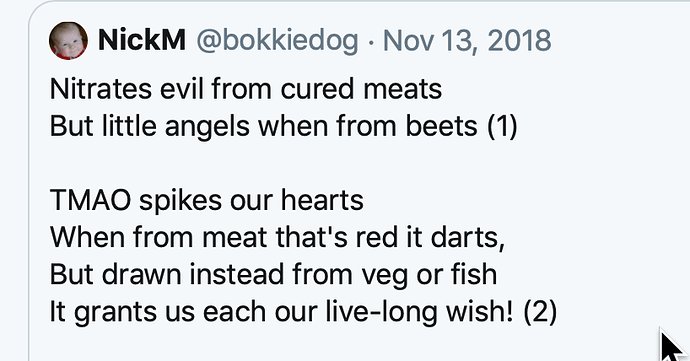This article mentioned that people on paleo have higher levels of TMAO, which is associated with heart disease, due to having higher levels of the gut bacteria that produce TMAO. It was claimed that the lack of legumes and whole grains caused the increase of the TMAO producing bacteria.
Who would like to weigh in on this?
Edit: written while I shovel in egg salad, liverwurst, and pork rinds for breakfast. 







